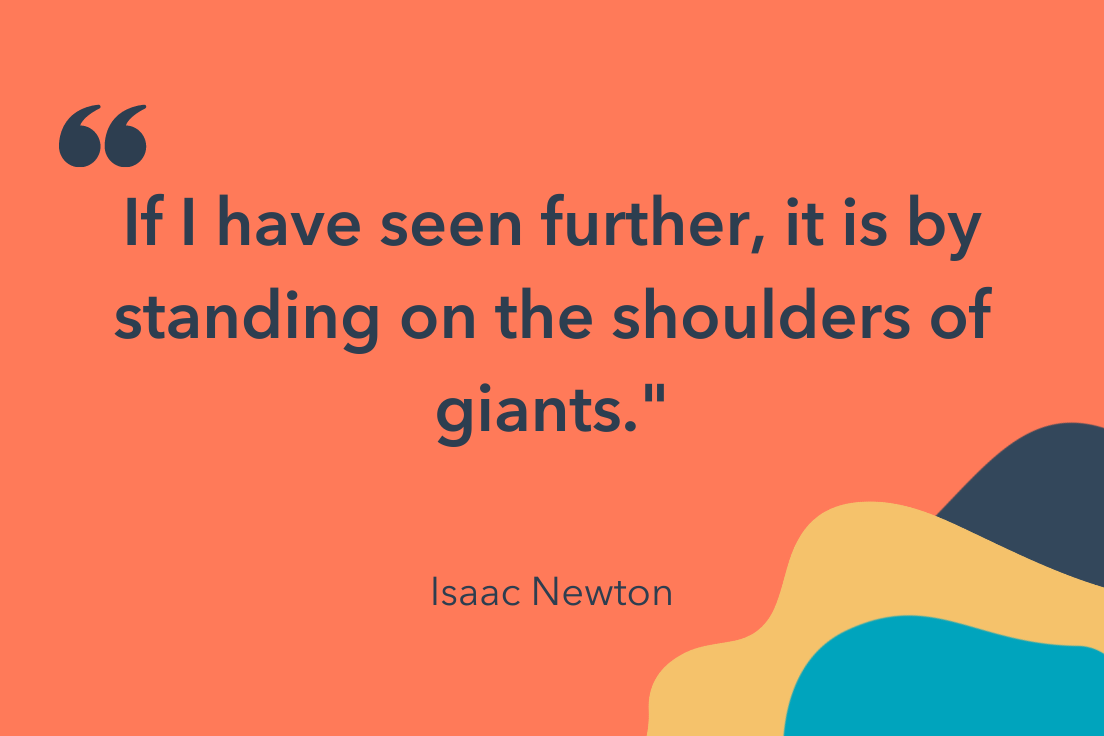
Photo:HubSpot
"If everyone is moving forward together, then success takes care of itself."- Henry Ford
Complex problems require interdisciplinary teams to solve them, but the current dominant model of neo-liberalism promotes individualism, selfishness, competition, specialisation and isolation. How can we then develop a cross-discipline culture of cooperation and dialogue for the common good?
‘No man is an island. Two heads are better than one. A problem shared is a problem solved - these are just some of the proverbs that tell of the virtues of teamwork, but it seems they can't always be universally applied.’
In the past few decades, there have been great endeavours to bring about a dialogue of civilisations, cultures, religions and peoples. However, there is a very serious void here: there has not been a concurrent attempt to bring about a fruitful and rewarding dialogue between different academic disciplines, faculties and values.
For example, there was a time when economics was regarded as a branch of theology, philosophy and ethics. Economic factors were intimately linked to what was regarded as just or right and these in their turn were shaped by spiritual and moral understanding of the common good. Today economics has become an autonomous discipline, divorced and separated from its original roots. This engineered separation has brought us all a very bitter harvest. In the end economics is about human well-being in society and this cannot be separated from moral, philosophical, theological, and spiritual considerations. The idea of an economics which is value-free is totally spurious. Nothing in this life is morally neutral.
The same of course can be said about other disciplines, such as business, commerce, management, education, medicine, law and much more.
This shortcoming is having a serious consequence on our ability to understand, evaluate, address and solve the multiple crises that the world is facing.
For example, as a recent article in the Guardian* has so eloquently observed:
‘The world is changing at an incredible rate. Pressing problems like climate change and the related social unrest are connected to an ever-growing population and dwindling resources. It has become clear that these vast problems cannot be answered by single academic disciplines, working within archaic institutional settings and throttled by systemic boundaries.
‘Working across disciplines is the key to answering the big questions, focusing on what is needed to solve problems, and transcending the boundaries of conventional approaches and disciplines. However, in academia we have put boundaries in place to stop this happening, and the pace of change to adopt new strategies is glacial at best.’
From 2002 when the GCGI was founded, we have been at the forefront of activities to encourage a way of working and forming a place where such dialogical conversations can be encouraged, nurtured, developed and supported by bringing together a group of noted scholars and professionals from all contexts and backgrounds who share this vision and appreciate the exciting potential of having the chance to talk, and engage in a dialogue of ideas, visions and values with people from a broad array of backgrounds and disciplines.
There are major benefits to such an interdisciplinary dialogue and encounter, amongst them: it nurtures critical thinking; it encourages the recognition of diverse perspectives; it increases tolerance for ambiguity; and it improves sensitivity to a wide spectrum of ethical issues.
We are committed to the view that inter-disciplinary and multi-disciplinary work is a very positive and credible way forward in a rapidly changing world. It is our firm belief that a dialogue of values, ideas, and visions, supported by a meaningful dialogue of interrelated academic disciplines, will be very positive for a successful and rewarding path to a better and more harmonious world.
We strongly encourage others to join us in this timely mission. I do know, from my personal conversation and engagement with many at different universities in different parts of the world that a very large number of academics as well as students are extremely unhappy about what is happening at their universities and other places of higher education.
The sense of disillusionment springs from the introduction of managerialism, the growing loss of collegiality, dwindling and competitively allocated resources for research, the inappropriate but nevertheless wholesale uses of business models in the education system, and the consequent transformation of Higher Education (teaching, research and learning) into a fundamentally consumerist activity.
For many working in higher education is not a job- it is more akin to a vocation- something one does because of a love of learning, teaching and the excitement of being with others, guiding and helping them to think for themselves. They do not see themselves as service providers and their students as customers.
In short, for us, at the GCGI, our sense of passionate commitment to inter-disciplinary work is a reaction to the sense of frustration many people feel when faced by the narrowness of subject disciplines and the inability of subject specialists to raise their eyes above or beyond the horizons of their own territory. Dialogue and engagement with people from varied areas of interest can throw fascinating, stimulating and poignant insights into one’s own thinking and research. There is nothing more refreshing than looking at one’s own work through the eyes of another, or being able to share perspectives with people from other professions who are working in similar areas. The possibilities for creative and innovative research are enormous.
